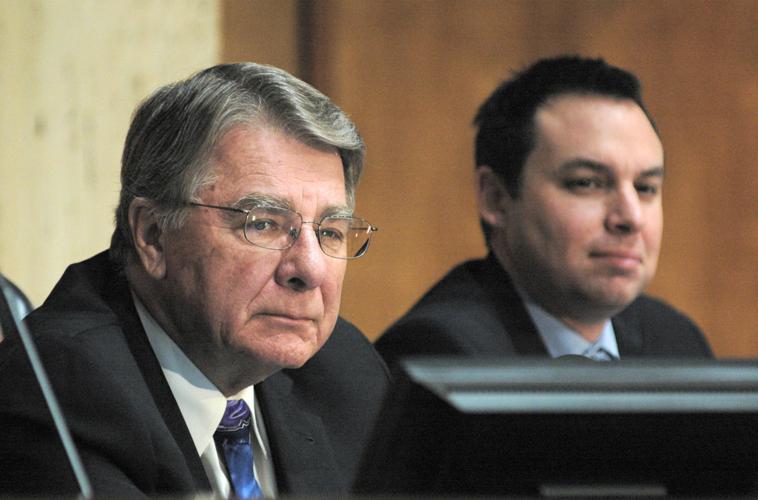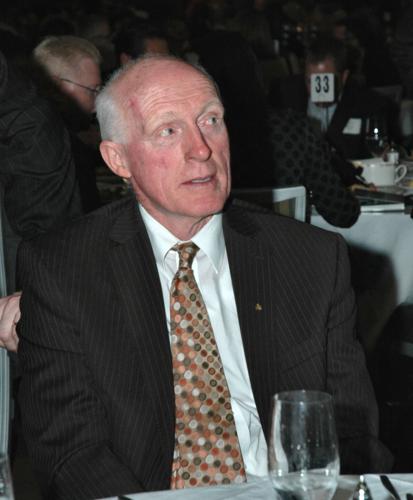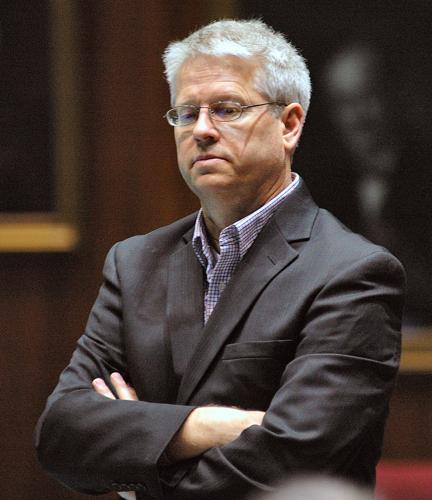PHOENIX — The president of the Arizona Senate wants four-year terms for state senators, saying it will lead to greater continuity, more stability and less campaigning.
Steve Yarbrough, R-Chandler, said the problem with forcing lawmakers to run every two years is they have to begin fundraising and campaigning almost as soon as they’re elected. He said the biennial campaigns also result in visual blight from the scads of campaign signs.
Yarbrough acknowledged the same situation exists for the 60 members of the House as it does for the 30 senators. But he said there is precedent for what he wants: In Congress, senators get six-year terms while representatives have to seek office every two.
Rep. Rusty Bowers, R-Mesa, said there’s a big flaw to that argument: Things aren’t the same in Phoenix as they are in Washington.
In Congress, there are just two senators from every state who are elected statewide; the number of representatives is based on population, with each one chosen by residents of only that district.
By contrast, state senators and lawmakers represent exactly the same districts and are elected by exactly the same voters. The only difference is there is one senator from each district and two representatives.
“If you’re going to go four years, make it for both of us,” said Bowers, who has served in both chambers. And he said if one aim is to keep lawmakers from having to effectively start campaigning the moment they’re elected, any legislation should “help us all in our misery.”
Rep. Eddie Farnsworth, R-Gilbert, echoed that sentiment.
“There’s really no difference between House and Senate in this state,” he said. “To bifurcate those and say for terms we’re going to treat one differently than the other, I probably wouldn’t stand in support of that.”
Yarbrough said the idea of four-year terms, but only for senators, is the system in 32 other states. He called it a “good government measure.”
“If senators can serve four-year terms, obviously we have fewer people out there running for election every two years, less money out of Clean Elections (for publicly financed candidates), less clutter on the side of the road,” Yarbrough said. “I think it would be good for senators to have longer terms to actually, hopefully, do an even better job.”
And would that logic not also apply to House members?
“If someone wants to advance that I might be willing to support it,” Yarbrough responded. But he thinks trying to provide four-year terms for all 90 lawmakers might be “a bridge too far” to line up the necessary votes.
Rep. Anthony Kern, R-Glendale, said he likes the current system just fine — for everyone.
“I feel like we, as two-year termers, are closest to the people,” he said, giving voters a chance every even-numbered year to turn out legislators who are not representing their will.
“That’s their balance of power,” Kern said.
“I understand the intent of having to pay and campaign every two years,” he continued. “But, you know, if that’s something I don’t like, then I wouldn’t run.”
SCR 1027, which ultimately would need voter ratification in 2018, has bipartisan support, at least in the Senate, even from Senate Minority Leader Katie Hobbs, D-Phoenix.
“The Senate is supposed to be the upper chamber,” she said.
Hobbs isn’t the only one to use that reference.
“I would assume it’s an intent to make the upper chamber more experienced and less prone to the emotions of the moment,” said Sen. John Kavanagh, R-Fountain Hills.
That self-reference of senators to theirs being the “upper chamber” does not impress House members.
“Good thing you’re not on camera so I can roll my eyes,” quipped Kern.
That’s why Yarbrough could have a problem lining up the votes in the House. But Yarbrough said House members should see a self-interest in going along, as most state senators start out as representatives.
He already has the backing of House Speaker J.D. Mesnard, R-Chandler, who represents the same district, and is elected by the same voters, as Yarbrough.
“You need a chamber that’s going to turn over more quickly as public sentiment changes,” Mesnard said. “And you need another chamber that’s a little bit more longer-lasting and stable and can withstand changes in public sentiment.”








